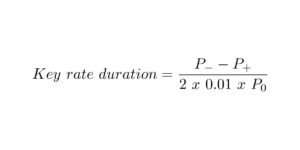What is the tax on children?
In 1986, a special tax law known as the “kiddie tax” was enacted to address unearned income tax and investments for individuals 18 years of age or younger, as well as dependent full-time students under 24.
How the Child Tax Operates
Individuals under a specific age (18 years old or under, as well as full-time students aged 19 to 24) with investments and unearned income over a level set annually are subject to the kiddie tax. This regulation is intended to stop parents from taking advantage of a tax break when they give significant stock presents to their kids. If the child’s investments yielded profits, they would be realized, and their tax rate would be significantly lower than the guardians’ realized stock gains.
Every unearned income above the threshold is subject to taxation at the parent’s marginal income tax rate under the kiddie tax law, not the child’s tax rate. 2021 will see the standard deduction apply to unearned income under $1,100. The child’s tax rate, which is very low and often 0%, is applied to the following $1,100. Anything over $2,200 is then subject to the guardian’s tax rate, which can be as high as 37%.
Unearned income up to $1,150 in 2022 is exempt from federal income taxes; the remaining $1,150 is subject to child tax rates.
What and Who Is Affected by the Kiddie Tax?
All children 18 years of age or younger after the tax year and dependent full-time students between the ages of 19 and 24 are subject to the kiddie tax as of 2021. Nevertheless, it does not cover children under these ages who are married and file joint tax returns.
Interest, dividends, capital gains, rent, and royalties are all considered forms of unearned income for the kiddie tax. The child is exempt from the kiddie tax on any salaries or wages they get.
Background of the Child Tax
The tax law originally only applied to children under the age of 14. Since children under 14 are not allowed to work, most of their income comes from bond interest or dividends. The tax authorities discovered, nevertheless, that some guardians would exploit the circumstance to later present their older, 16–18-year-old children with stock gifts.
Individuals 18 years of age or younger with unearned income and investments exceeding a level set annually are subject to the kiddie tax. When income exceeds a pre-established threshold, the IRS taxes it at the parent’s tax rate. The kiddie tax is now temporarily using the tax rates applicable to estates and trusts instead of the child’s parent’s tax rate, thanks to the Tax Cuts and Jobs Act of 2017.
However, the Further Consolidated Appropriations Act of 2020 retroactively restored the parent’s tax rate. The kiddie tax could be calculated using the parent’s take rate or the estate tax rates for 2018 and 2019 returns. The parent’s tax rate will be applicable for 2020 and later.
Conclusion
- Parents can’t dodge paying taxes by giving significant gifts of stock because of the kiddie tax.
- The parent’s income tax rate, not the child’s, applies to all unearned income over the cap.
- It covers all kids younger than 18 years old or between the ages of 19 and 24 who are full-time students and can’t work.
- It is important to note that the kiddie tax only applies to a child’s unpaid income, not their pay or wages.
- Under the baby tax law, people with unearned income of less than $1,150 can get the standard deduction in 2022.














































